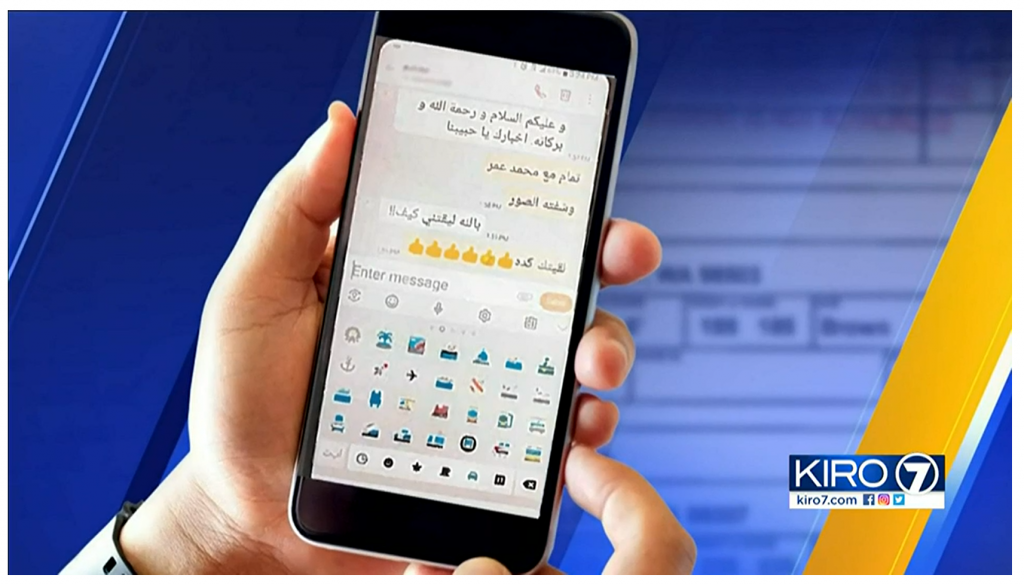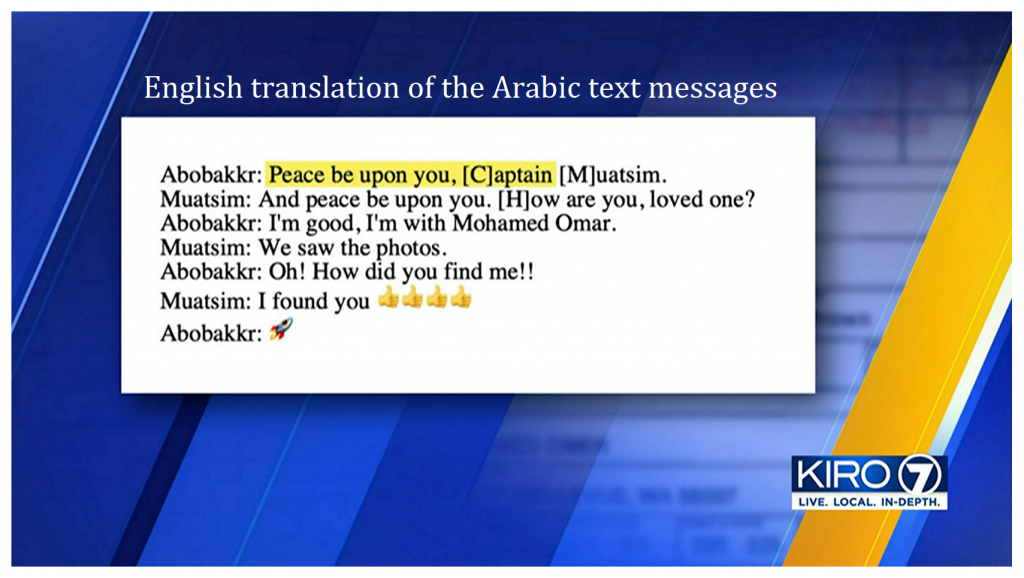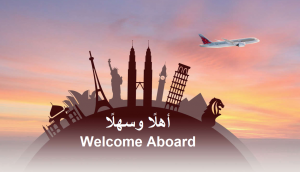Unfortunately, this story is not new. Two Muslim men were kicked off an Alaska Airlines flight. Their crime? Texting in Arabic.
 Last winter, while texting before takeoff, these men apparently incited fear and a terrorist alert when a fellow passenger alerted the crew to this perceived threat. While safety must remain at the forefront for all, it is high time the systems, processes, and human condition that abides be scrutinized, dismantled, and created with true diversity, equity, and inclusion at the forefront.
Last winter, while texting before takeoff, these men apparently incited fear and a terrorist alert when a fellow passenger alerted the crew to this perceived threat. While safety must remain at the forefront for all, it is high time the systems, processes, and human condition that abides be scrutinized, dismantled, and created with true diversity, equity, and inclusion at the forefront.
Texting while brown. Not, in fact, illegal. Texting in a language other than English. Also, not illegal. Yet, none of the articles and news briefs about this latest incident reminded us of this. Repeated, irresponsible actions as a result of ongoing ignorance, fear, and even hate, disrespect our fellow humans while violating their rights and freedoms. Have we learned nothing over the last 20-years since 9/11? Or over the last 400-years of systemic and structural racism? Or nearly 175-years since the women’s suffrage movement?
Why is basic human decency so hard to achieve? In part, it is because ignorance, fear and intolerance are embedded human characteristics. Implicit bias is hidden or unconscious and expressed automatically, generally without awareness. In fact, Cheryl Staats of the Kirwan Institute at The Ohio State University explains, “Many studies have indicated that implicit biases affect individuals’ attitudes and actions, thus creating real-world implications, even though individuals may not even be aware that those biases exist within themselves” (State of the Science: Implicit Bias Review, 2013). Whether those who sound the alarm are aware of their biases or the consequences of their actions doesn’t change the damaging outcomes for the accused. Fear and ignorance compromises morals and values, compassion and empathy, understanding and acceptance — the very qualities needed to prevent incidents like this one on Alaska Airlines and far too many others, on airlines and elsewhere.
Last year, just as I had settled into my seat for an Alaska Airlines red-eye flight, an older, white female near my row was struggling to place her carryon in the overhead bin. With no other fellow passengers, especially those still standing, offering her assistance, I immediately rose to help. We ended up seated in the same row. As we both settled into our seats, she thanked me for my help. We began chatting and before long, she was telling me all about her recent church group trip to Jordan and Israel, proudly showing me her photos. When I asked about her experiences in the Muslim majority country of Jordan, and without knowing my faith, she shared that Muslims are to kill or convert non-Muslims in order to go to heaven after they die.
Though jarred by her comments, and not expecting them from a person who had just returned from Jordan, I did not sound any alarms. Instead, I felt the need to continue our conversation and perhaps help her get beyond her ignorance and prejudice. As we got to know each other, I gently and jokingly said, “You are sitting next to a Muslim, how do you feel?” After a beat of silence, we both started laughing. She clearly did not sound any alarms either. Before long, we were no longer strangers and instead saw one another as human first; human beings with more in common than we would’ve ever known if we hadn’t started talking. In fact, she realized that we hold much in common in faith as well.
As we approached our destination, she thanked me for our conversation and asked me about visiting a local mosque. She told me she was interested in reading the Quran and hoped to learn more about Islam and Muslims. Neither of us allowed bias, fear, or ignorance to overpower us, causing chaos or worse. Instead, a small act of kindness, followed by calm, friendly conversation, and a genuine desire to learn allowed each of us to open up, sharing parts of ourselves and our stories with the other.
 While we live in a time of tremendous misinformation, lies, and stereotypes, it’s far too easy to react out of fear. However, it is our collective responsibility to act with empathy and understanding first. Just think what might have happened if the concerned passenger actually tried engaging with his fellow seatmates. A simple hello and friendly dialogue can help break the ice, calm nerves, and provide courage to inquire about a language or alphabet unfamiliar to yourself, opening up a learning opportunity. We can avoid unnecessary pain, harassment, trauma, costly investigations, or potential injury if we allow ourselves to make genuine connections with others, especially those seemingly unlike us. Perhaps, if this is too much to start, how about asking how you’d feel if you were one of the Muslim passengers innocently texting one moment, being thrown off the plane the next.
While we live in a time of tremendous misinformation, lies, and stereotypes, it’s far too easy to react out of fear. However, it is our collective responsibility to act with empathy and understanding first. Just think what might have happened if the concerned passenger actually tried engaging with his fellow seatmates. A simple hello and friendly dialogue can help break the ice, calm nerves, and provide courage to inquire about a language or alphabet unfamiliar to yourself, opening up a learning opportunity. We can avoid unnecessary pain, harassment, trauma, costly investigations, or potential injury if we allow ourselves to make genuine connections with others, especially those seemingly unlike us. Perhaps, if this is too much to start, how about asking how you’d feel if you were one of the Muslim passengers innocently texting one moment, being thrown off the plane the next.
For the inevitable witnesses – what can we do to help avoid escalation? We too, need to act with empathy and understanding, both for the victims and the victimizers. Let us not assume the worst of either party. Instead, we can offer comfort and support. This will become easier to extend if we all commit to listening, learning, and sharing. Finding ways to connect with our fellow passengers, neighbors, and community members will build bridges among us all, dismantling ignorance, fear, and hate one heart, and one mind at a time.
~ Rais Bhuiyan, Founder & President, World Without Hate

